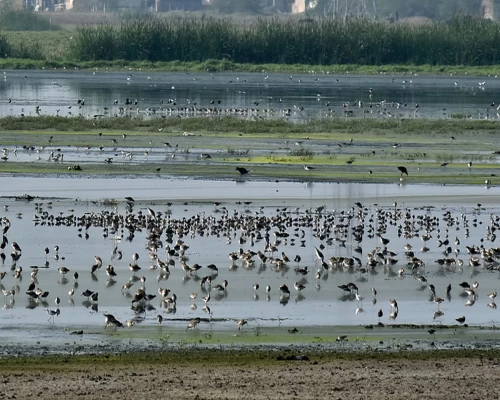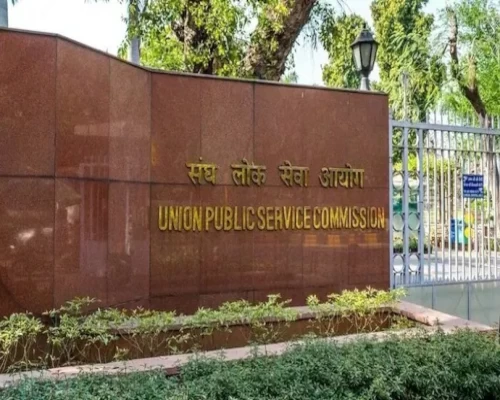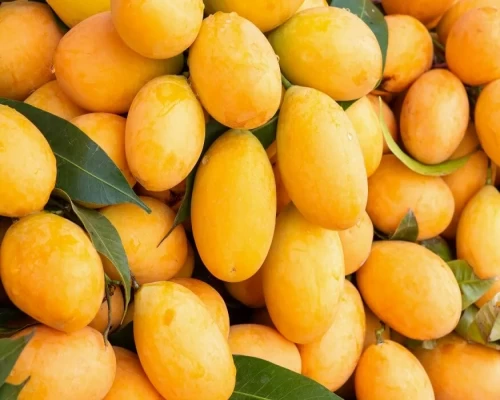
Technology in agriculture, particularly, seeds has great potential to provide sustainable, profitable yet affordable solutions for a wide-array of challenges including climate change. But to maximise the benefits, it is important to establish an open, unbiased and enabling policy environment.
On National Technology Day, the seed industry reiterates the importance of biotechnological solutions as vital aids in addressing the challenges confronting the agriculture sector. For example, with heat waves causing a 4.5% decrease in wheat yield across India, with some areas experiencing up to a 15% drop. This decline highlights the immediate impact of climate change on agricultural productivity and food security.
Rising global temperatures, coupled with increasingly severe and unpredictable weather patterns, have been exacerbated by the greenhouse warming effect, contributing to the occurrence of the El Niño weather phenomenon. Heatwaves, insufficient rainfall, and changes in monsoon patterns have collectively resulted in significant water stress in agricultural fields, leading to reduced crop yields. Rising temperatures can lead to heat stress in crops, affecting their growth and development. Heatwaves during critical stages of crop growth can reduce yields and quality.
India is close to reaching a tipping point where groundwater levels will plummet, according to a 2023 UN Water report. The northern parts of the country have lost 95 per cent of their groundwater between 2002 and 2022, and some areas in the Indo-Gangetic basin have already passed the groundwater depletion tipping point. India is the world's largest consumer of groundwater, using about a quarter of the world's total.
Need for developing drought-resistant crop varieties
The combination of water scarcity, heatwaves, frequent droughts, and unpredictable monsoons presents a significant challenge to India's agricultural productivity. These challenges underscore the urgent need to prioritise the development of drought-resistant crop varieties. With climate change exacerbating these issues, the cultivation of crops with enhanced drought tolerance is increasingly essential to safeguarding food security of the nation. Redirecting focus towards the breeding and promotion of drought-resistant varieties is imperative to ensure the resilience and sustainability of India's agricultural sector in the face of mounting environmental pressures.
Plant breeders in both private and public sectors have dedicated their efforts to develop varieties and hybrids capable of withstanding drought stress across various crops. Although the process is gradual, there have been notable successes in breeding drought-tolerant crops. Examples include conventional breeding programmes such as the creation of rice, wheat, and Indian mustard varieties resilient to salt and alkali soils by the Central Soil Salinity Research Institute in Karnal. Additionally, maize hybrids with heightened drought tolerance have been developed, along with endeavours to integrate salt tolerance into wheat from wild relatives. Notably, drought tolerance has been prioritised as a selection trait in the generation of new maize and wheat germplasm by the International Maize and Wheat Improvement Centre (CIMMYT). The advent of genetic modification (GM) and gene editing technologies offers a swifter route to producing drought-tolerant crops. Presently, GM varieties of Glycine max (soybean) and Zea mays (maize), as well as gene-edited wheat for drought tolerance, have been developed and sanctioned in many countries.
The private seed industry in India has been a key driver of technological advancements in agriculture, with significant contributions to the sector's growth and development. This sector has witnessed a steady increase in investments in research and development in advanced technologies, reflecting a strong commitment to exploring innovations and several members of Federation of Seed Industry of India invest, on an average, over 10 percent of the annual turnover for R&D. Furthermore, the private seed sector has introduced a wide range of high-yielding hybrid seeds, genetically modified crops, and biofortified varieties, catering to the diverse needs of Indian farmers and consumers. These technological interventions have led to notable improvements in crop yields, quality, and resilience, contributing to food security and sustainable agriculture practices. All these efforts collectively empowered the farmers particularly, smallholders, to enhance their productivity and profitability, driving overall agricultural growth in India. Overall, the private seed industry's relentless focus on technology-driven solutions, coupled with strategic investments and market expansion efforts, has positioned it as a key player in India's agricultural transformation, fostering innovation, sustainability, and economic development in the sector.
In the current scenario, climate change poses a formidable threat to both agricultural sustainability and food security. Increasing frequency of extreme weather events underscores the urgency of addressing these challenges. As we navigate these uncertain conditions, it's evident that our agricultural systems face mounting pressures. However, amidst these challenges lies an opportunity for technologies in seed including biotechnology to play a pivotal role in adaptation and resilience.
As we mark National Technology Day, it's imperative for policymakers, researchers, and the seed industry to collaborate in promoting the adoption of biotechnology-driven solutions among farmers. By enhancing the genetic makeup of crops, we can bolster their ability to withstand prolonged periods of drought and other climatic stresses. This is the time for the policymakers, researchers and seed industry to come together to promote this sustainable solution to the farmers and make the agri-food system climate-resilient.
The writer is Senior Director – Biotechnology, Federation of Seed Industry of India (FSII)












